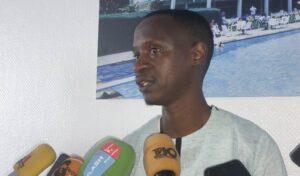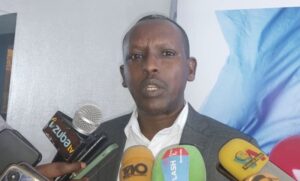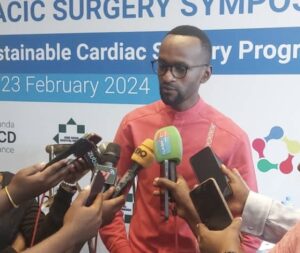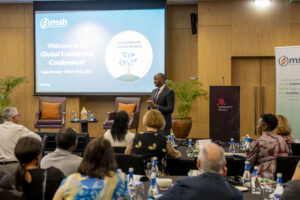
In a significant event held on February 23, 2024, Kigali hosted an important gathering that brought together leaders from the Ministry of Health, experienced heart surgeons, dedicated cardiac care nurses, aspiring cardiology students, and individuals who have undergone treatment and recovery. Their collective aim was to collaborate and explore strategies to strengthen Rwanda’s capacity for treating cardiovascular diseases.
According to the World Health Organization (WHO), heart disease is responsible for a staggering 17.9 million deaths annually, making it the leading cause of death globally. Alarmingly, the mortality rate for these conditions is 14% each year. Experts specializing in heart disease treatment in Rwanda have also observed a worrying trend: a significant number of patients seeking medical help for cardiac issues do so when the disease has already reached an advanced stage. This underscores the urgent need for improved awareness and timely intervention.

Nsangano Etienne is among those who underwent surgery for heart disease in 2006 in a South African country.
He states, “The support from my family and others enabled me to seek medical treatment abroad as the medical system in Rwanda was not yet developed. I was filled with fear due to the difficult life I had experienced before, and I questioned whether I could trust myself again. Would my life have value in my own country?”
“Fortunately, over time, these questions were gradually answered as the Government of Rwanda extended assistance in various sectors, including providing the necessary medications we required at that time.”
Cardiologists in Rwanda, such as Dr. Evaliste Ntaganda and Dr. Sendegeya Augustin, confirm significant progress in addressing heart diseases within the country.

Dr. Ntaganda explains, “Heart diseases encompass two main categories: congenital conditions and acquired conditions that develop later in life. Acquired conditions may include enlargement of the heart chambers, malfunctioning heart valves, nerve damage, and more. Additionally, certain lifestyle factors contribute to heart disease, such as physical inactivity, which leads to an untrained heart, inactive until it’s needed.”

Dr. Sendegeya explains that his journey started in 2006 when teams of doctors were hosted at King Faisal Hospital to provide treatment for patients. However, the effectiveness of these visits was limited because they lasted only a week or more, and not all patients requiring treatment could be accommodated within that timeframe. It has been more than a year since the implementation of a permanent program for the treatment of heart diseases, both surgical and non-surgical, catering to both pediatric and adult cases.

Dr. Nkeshima Menelas, the director responsible for medical personnel education and development at the Ministry of Health, acknowledges the advancements made in treating heart disease in Rwanda. However, he emphasizes the ongoing need for specialized doctors in this field. He assures Rwandans that efforts are being made to address this gap by increasing the number of trained medical professionals through education and training programs.
Reflecting on the past, Dr. Menelas notes, “There was a time when we lacked doctors with the expertise to treat heart conditions or perform heart surgeries within our country. It has been 17 years since Rwanda conducted its first heart surgery. However, considering the significant number of patients awaiting treatment, our national strategy focuses on expanding the pool of doctors and nurses.”
Given the complexity of cardiovascular surgery, the government, in collaboration with the Mutuelle de Sante healthcare association, facilitates the treatment of heart disease patients at King Faisal Hospital. As the sole facility in Rwanda equipped to handle such cases, the Ministry of Health emphasizes the hospital’s crucial role in addressing cardiovascular ailments within the country, with a minimum of six patients being attended to on a daily basis.
Fabrice HAKUZIMANA

